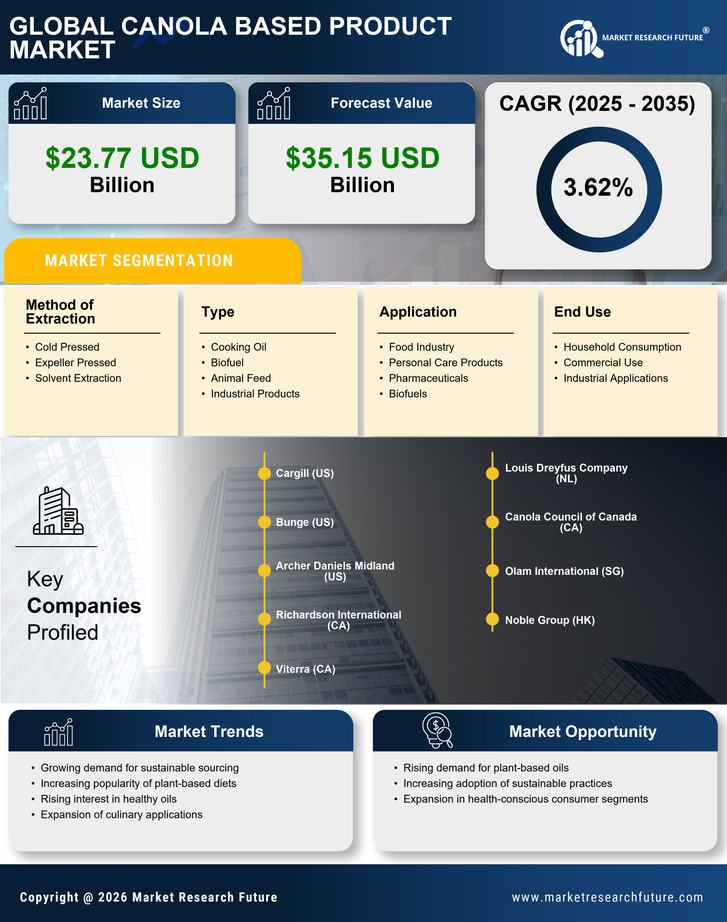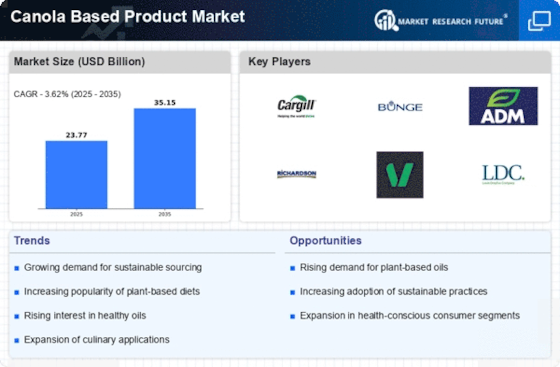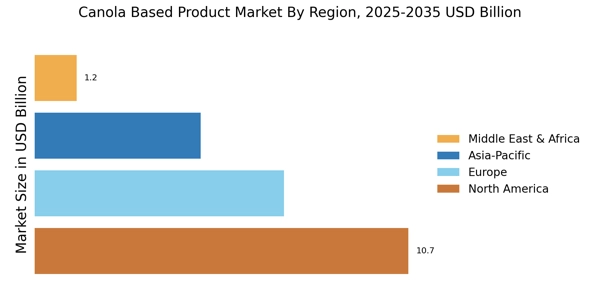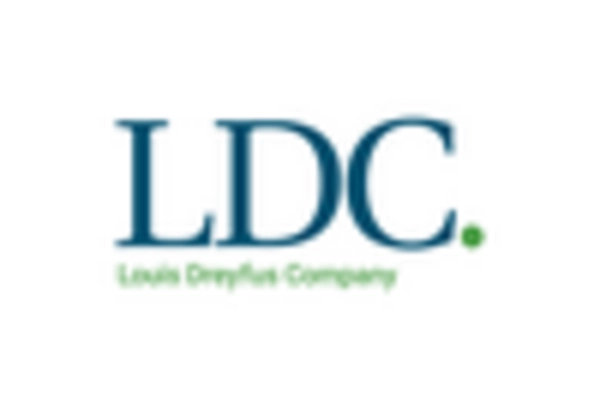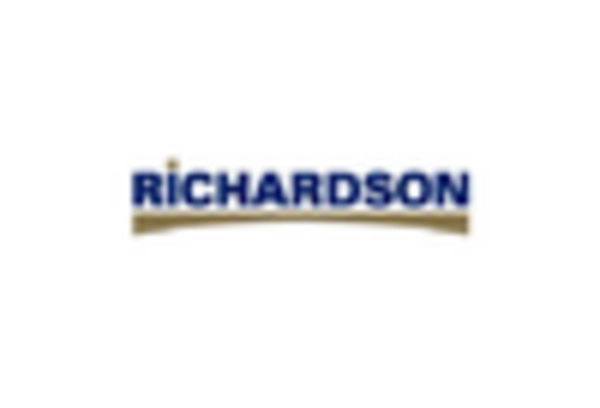Sustainability Initiatives
Sustainability has become a crucial consideration for consumers and manufacturers alike, influencing the canola based product Market. The cultivation of canola is often associated with environmentally friendly practices, such as reduced pesticide use and lower greenhouse gas emissions compared to other oilseed crops. This alignment with sustainable agriculture resonates with eco-conscious consumers, driving demand for canola-based products. Additionally, the industry is witnessing a shift towards organic canola oil, which is perceived as a healthier and more sustainable option. Market data suggests that organic canola oil sales have increased significantly, reflecting a broader trend towards sustainable food choices. As sustainability continues to shape consumer preferences, the Canola Based Product Market is likely to benefit from this growing emphasis on eco-friendly practices.
Rising Demand for Healthy Oils
The increasing awareness of health and nutrition among consumers appears to be a primary driver for the Canola Based Product Market. As individuals seek healthier alternatives to traditional cooking oils, canola oil, known for its low saturated fat content and high omega-3 fatty acids, has gained popularity. Recent data indicates that the demand for canola oil has surged, with consumption levels rising by approximately 5% annually. This trend is likely to continue as more consumers prioritize heart health and overall wellness, thereby propelling the growth of the Canola Based Product Market. Furthermore, the versatility of canola oil in various culinary applications enhances its appeal, making it a staple in households and restaurants alike.
Growing Interest in Functional Foods
The trend towards functional foods, which offer health benefits beyond basic nutrition, is influencing the Canola Based Product Market. Canola oil is often marketed for its health-promoting properties, including its ability to support heart health and reduce inflammation. As consumers become more health-conscious, the demand for functional foods is on the rise, with canola oil positioned as a key ingredient in many health-focused products. Recent surveys indicate that nearly 70% of consumers are actively seeking foods that provide additional health benefits, which bodes well for the canola oil market. This growing interest in functional foods is likely to drive innovation and product development within the Canola Based Product Market, as manufacturers seek to capitalize on this trend.
Expanding Applications in Food Industry
The versatility of canola oil extends beyond cooking, as it finds applications in various sectors of the food industry, thereby driving the Canola Based Product Market. Canola oil is increasingly used in processed foods, salad dressings, and baked goods due to its neutral flavor and high smoke point. Moreover, the rise of plant-based diets has led to an increased demand for canola oil as a key ingredient in vegan and vegetarian products. Market analysis indicates that the food processing sector is projected to account for a significant share of the canola oil market, with growth rates expected to exceed 6% annually. This expanding range of applications underscores the importance of canola oil in meeting diverse consumer needs, further propelling the Canola Based Product Market.
Technological Advancements in Production
Technological innovations in the agricultural sector are playing a pivotal role in enhancing the efficiency and yield of canola production, thereby impacting the Canola Based Product Market. Advances in biotechnology, such as genetically modified canola varieties, have led to crops that are more resistant to pests and diseases, resulting in higher yields. This increase in production efficiency is crucial, especially as global demand for edible oils continues to rise. Recent statistics indicate that canola production has increased by approximately 10% over the past five years, largely due to these technological advancements. As producers adopt new technologies, the Canola Based Product Market is expected to experience growth, driven by improved supply and reduced production costs.
